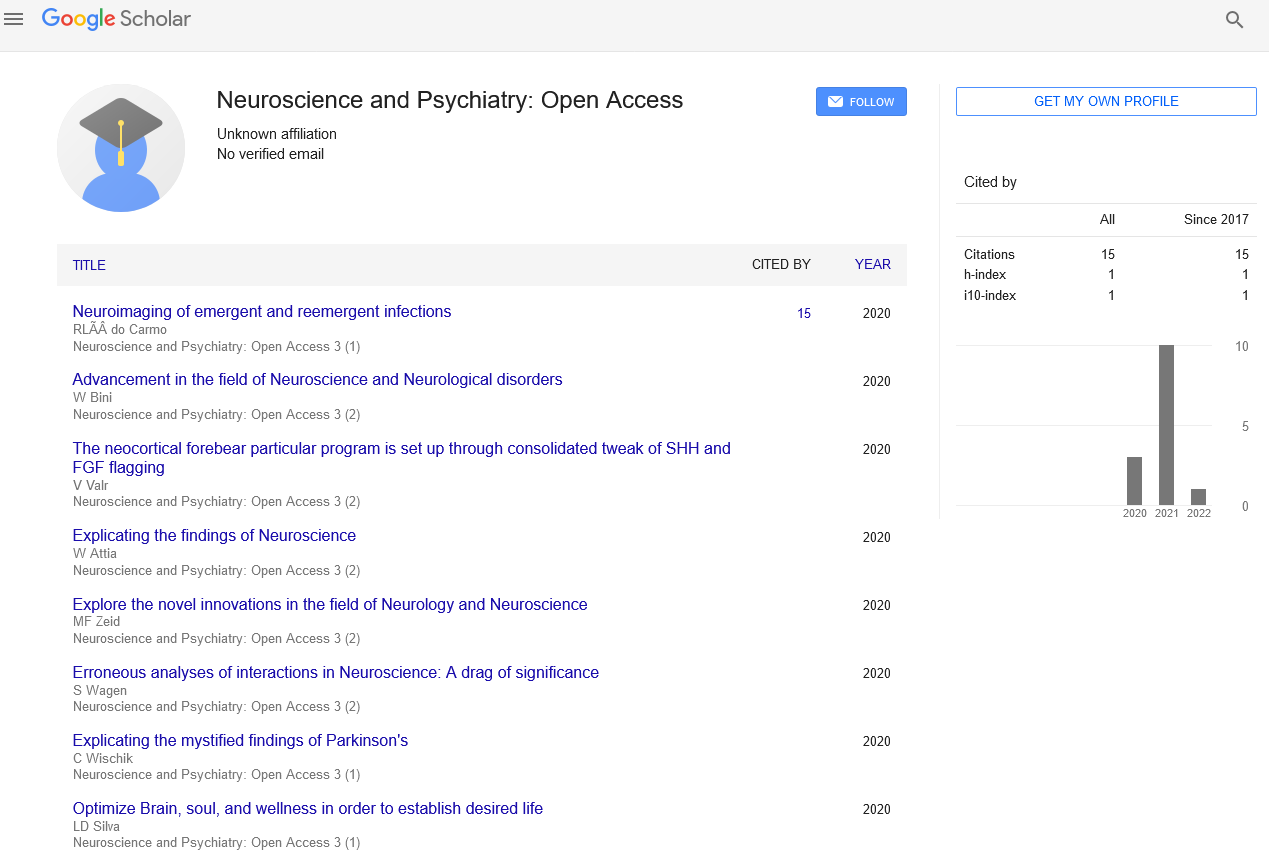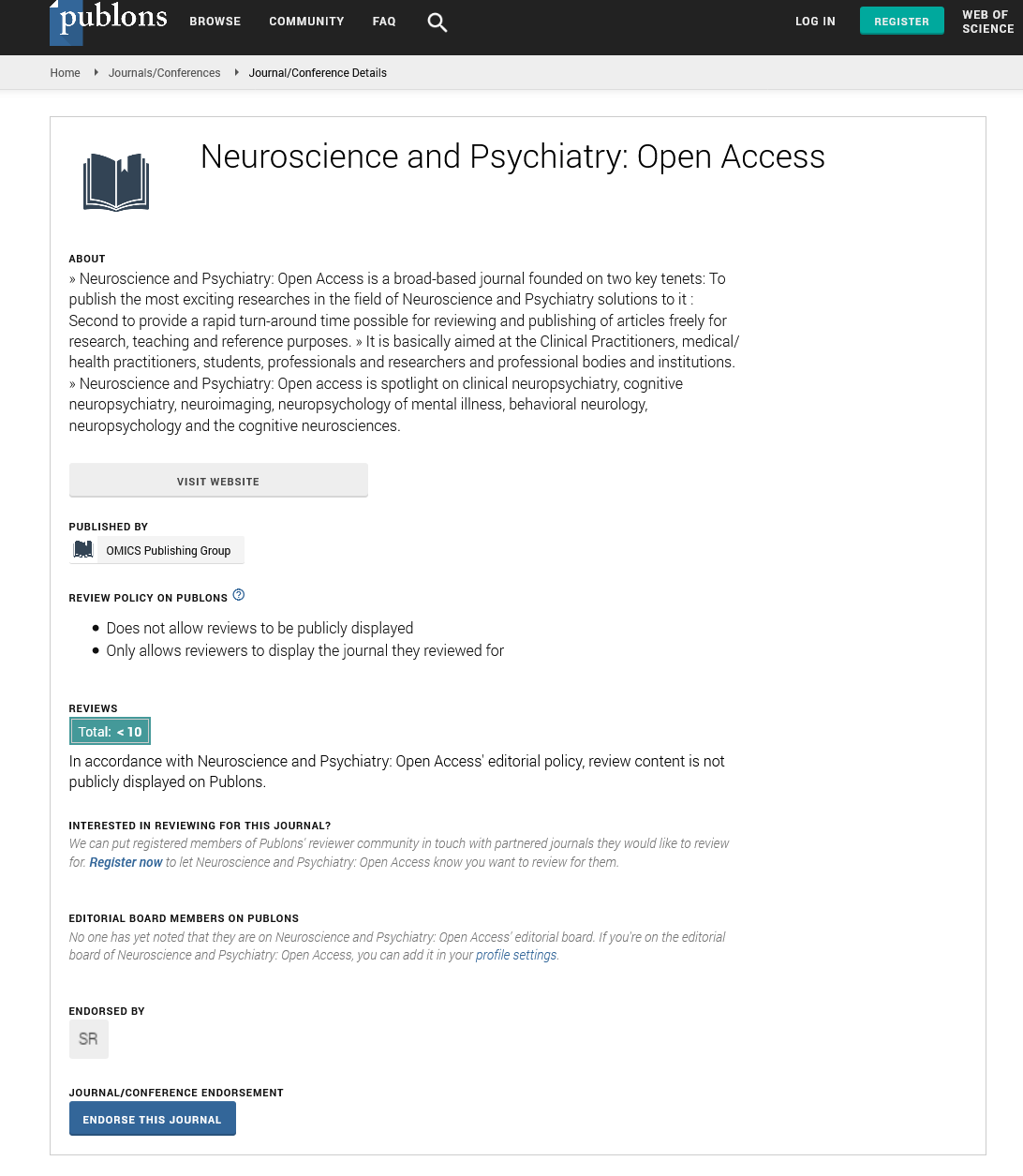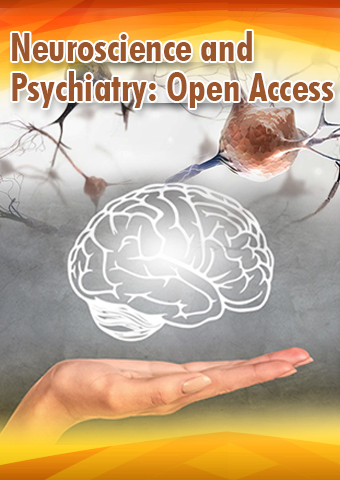Commentary - Neuroscience and Psychiatry: Open Access (2024) Volume 7, Issue 4
The Gut-Brain Axis: Implications for Mental Health
- Corresponding Author:
- Banu Manickam Rajalu
Department of Brain and Cognitive Sciences, National Institute of Mental Health and Neurosciences, Bangalore, India
E-mail: banupr@yahoo.co.in
Received: 21-06-2024, Manuscript No. NPOA-24-140646; Editor assigned: 25-06-2024, PreQC No. NPOA-24-140646 (PQ); Reviewed: 09-07-2024, QC No. NPOA-24-140646; Revised: 19-07-2024, Manuscript No. NPOA-24-140646 (R); Published: 26-07-2024, DOI: 10.47532/npoa.2024.7(4).237-238
Description
In recent years, research into the gut-brain axis has unveiled a complex and fascinating relationship between the gastrointestinal system and mental health. This bidirectional communication pathway involves intricate interactions between the gut microbiota, the Central Nervous System (CNS), and the immune system, influencing various aspects of brain function and mental well-being.
Understanding the gut-brain axis
The gut-brain axis refers to the communication network that links the gut and the brain, integrating signals from the gastrointestinal tract with neural, hormonal, and immune pathways. This communication occurs through multiple channels, including the vagus nerve, neurotransmitters, immune mediators, and microbial metabolites.
Key players in this axis include the gut microbiota trillions of microorganisms residing in the intestines and their collective genetic material, known as the microbiome. These microbes play pivotal roles in digestion, metabolism, and immune function, but their impact extends far beyond the gut. Recent studies have highlighted their influence on brain health and behavior, implicating the gut microbiota in the regulation of mood, cognition, stress responses, and even mental health disorders.
Implications for mental health
Mounting evidence suggests that disruptions in the gut microbiota composition, known as dysbiosis, may contribute to the development or exacerbation of mental health conditions such as depression, anxiety, autism spectrum disorders, and even neurodegenerative diseases.
Mood regulation: The gut microbiota produces neurotransmitters such as serotonin, dopamine, and Gamma-Aminobutyric Acid (GABA), which are crucial for mood regulation. Serotonin, in particular, plays a key role in modulating emotions and is often referred to as the “happiness hormone.” Alterations in microbiota composition can influence serotonin production, potentially impacting mood stability and contributing to mood disorders.
Stress response: The gut-brain axis also plays a vital role in regulating the body’s response to stress. Stress can disrupt the balance of gut microbes, leading to changes in intestinal permeability and immune activation. This, in turn, may exacerbate inflammation and contribute to stress-related psychiatric disorders.
Immune function: Gut microbes interact closely with the immune system, influencing immune responses and inflammation levels throughout the body. Chronic inflammation has been linked to various psychiatric disorders, including depression and schizophrenia. Dysbiosis-induced inflammation may therefore represent a mechanistic link between gut health and mental well-being.
Neurological conditions: Emerging research suggests that disturbances in the gut-brain axis may contribute to the pathogenesis of neurodegenerative diseases such as Alzheimer’s and Parkinson’s disease. Disruptions in gut microbiota composition and function have been observed in patients with these conditions, suggesting a potential role for gut health in disease progression.
Therapeutic implications
Understanding the gut-brain axis opens new avenues for therapeutic interventions aimed at improving mental health outcomes. Several strategies are being explored:
Probiotics and prebiotics: Probiotics are live microorganisms that confer health benefits when consumed in adequate amounts, while prebiotics are dietary fibers that promote the growth of beneficial gut bacteria. Both probiotics and prebiotics have shown promise in modulating the gut microbiota and alleviating symptoms of mood disorders.
Dietary interventions: Diet plays a crucial role in shaping the gut microbiota composition. A diet rich in fiber, fruits, vegetables, and fermented foods supports a diverse and healthy microbiome. Conversely, diets high in processed foods and sugars may promote dysbiosis and inflammation, potentially exacerbating mental health symptoms.
Psychobiotics: Psychobiotics are a new class of probiotics that specifically target mental health symptoms by modulating the gut-brain axis. These probiotics produce neurotransmitters or other bioactive compounds that influence brain function and mood regulation.
Lifestyle modifications: Lifestyle factors such as exercise, sleep quality, and stress management also impact the gut-brain axis. Regular physical activity, adequate sleep, and stress-reduction techniques can support a healthy microbiome and promote mental well-being.
Challenges and future directions
While research into the gut-brain axis holds promise, several challenges remain. Variability in individual microbiota composition, the complexity of microbial interactions, and the need for rigorous clinical trials are significant hurdles in translating findings into clinical practice.
Future research efforts should focus on elucidating the specific mechanisms by which gut microbiota influence mental health, identifying biomarkers of dysbiosis, and developing personalized interventions tailored to individual microbiome profiles.
The gut-brain axis represents a paradigm shift in our understanding of mental health, highlighting the intricate interplay between gut microbiota, brain function, and psychological well-being. By exploring this dynamic relationship, researchers and clinicians are paving the way for innovative therapies that harness the therapeutic potential of the microbiome to improve mental health outcomes. As we continue to unravel the mysteries of the gut-brain axis, integrating these insights into clinical practice promises to revolutionize approaches to mental health care in the 21st century.


